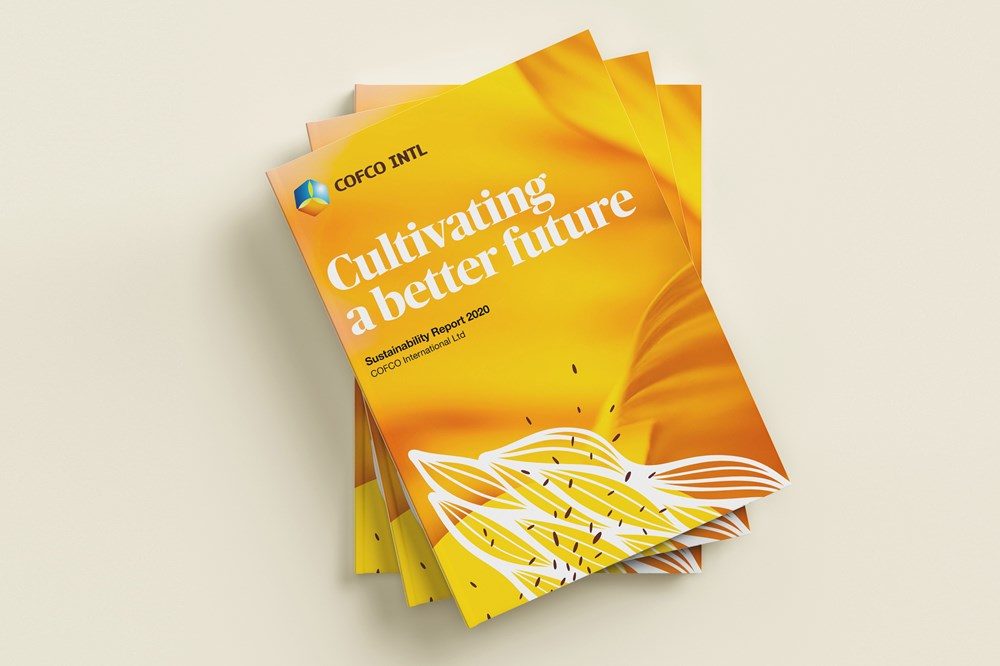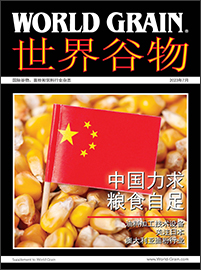BEIJING, CHINA — COFCO International, a China-based agribusiness giant, said it remains committed to sustainable business and agriculture practices despite the challenges presented in 2020 by the coronavirus pandemic.
“The COVID-19 pandemic has highlighted the pressing need to build resilience in our food system, and change our relationship with nature,” said David Dong, chief executive officer of COFCO International. “This must take place amid heightened economic pressure, volatile markets and the pressing challenges of climate change, biodiversity loss and resource scarcity.”
The company released its 2020 sustainability report, “Cultivating a Better Future,” outlining the actions it took to keep people and food safe while keeping agricultural supply chains moving.
The report highlighted several major sustainability goals and achievements including the company’s efforts to achieve fully traceable soy supply chains in Brazil.
In 2020, ahead of schedule, COFCO achieved the Soft Commodities Forum’s (SCF) goal of 100% traceability in all 25 priority municipalities of Brazil’s Cerrado region.
The company attributes this feat to its partnerships with the International Finance Corporation (IFC), a member of the World Bank, RenovaBio and 2BSvs sustainability certification schemes in Brazil and Argentina, Tropical Forest Alliance (TFA) and the SCF.
“The shift to more sustainable soy shows how long-term profit and good agricultural practices go hand in hand together,” Dong said. “We expect further progress to come when the right incentives are in place for Brazilian soy producers to protect their precious environments.”
Climate, shipping and renewables are other areas of efforts that COFCO is working to reduce its Greenhouse Gas (GHG) emissions.
The company acknowledged an increase in total energy consumption due to its expanded industrial operations, but it noted new energy efficiency measures were put into place. In 2020, COFCO International’s energy intensity dropped by 4%.
COFCO reached 88% of total energy use in 2020, a 1% increase on the year before, driven largely by greater use of bagasse at sugar mills in Brazil. These sugar mills also supplied local power grids with 723,921 MWh of surplus bioenergy in 2020, a 10% increase on 2019.
COFCO said it is working to halve global carbon emissions from its shipping vessels fleet by 2050. In 2020, the company signed up to the new IMO-led Sea Cargo Charter, an industry commitment to a shared and consistent way of reporting on emissions. The company also continues to invest in new exhaust systems to reduce the amounts of sulphur emitted from its ships.
“Despite the difficult operating environment in 2020, COFCO International was able to embed sustainability even further, leveraging traceability to deepen our understanding of supply chain risks and identify priorities for even better performance,” said Julia Moretti, global head of sustainability for COFCO International. “We are extremely grateful to all those partners, who have helped us progress towards sustainable supply chains, while reducing our environmental footprint and promoting human rights.”
According to COFCO International’s sustainability report, the company fulfilled many goals in 2020. Some of those include:
- Mapping and analysis of 357 soy supplying farms in Brazil – nearly 428,000 hectares – with IFC and Agrosatélite
- Continued pursuit of biological pest control methods on sugar farms in Brazil to help protect pollinators and improve soil health
- Continued progress on palm traceability to mill level, reaching 91% by the end of 2020, up from 86% in 2019





